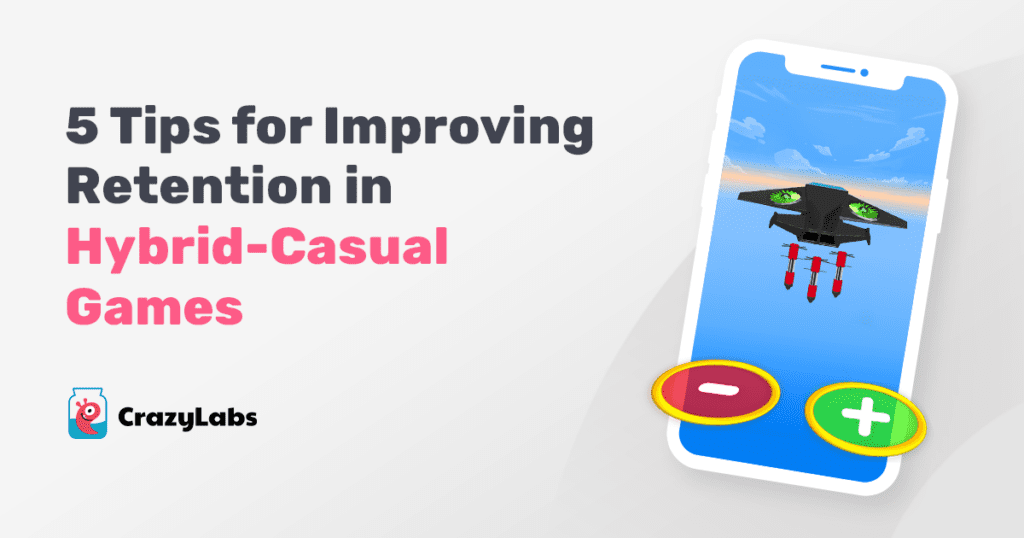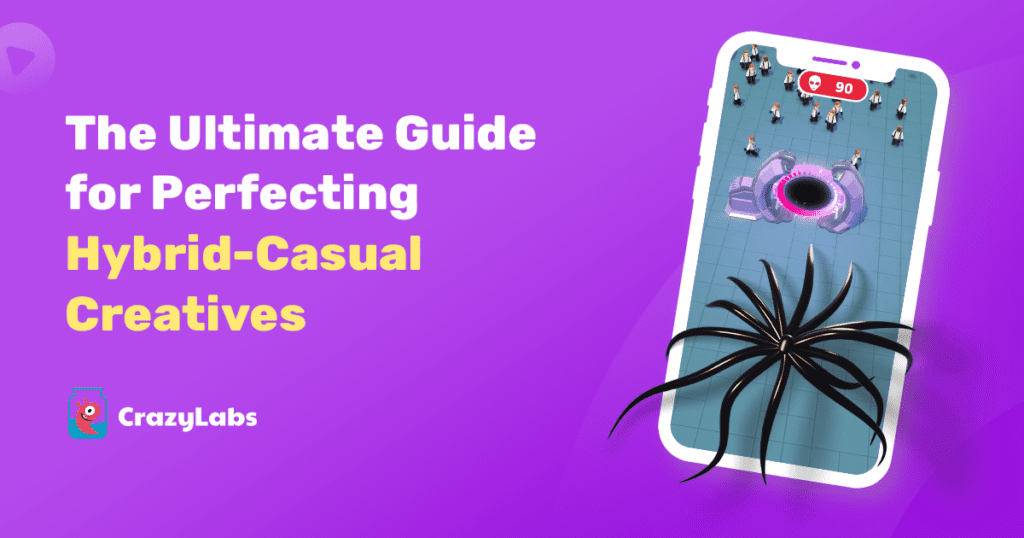Crinkle Games founders, Damla Gunaydin and Taylan Keser, met at CrazyLabs’ CrazyHubs, a hyper-casual game accelerator where developers around the world get the opportunity to learn everything they need to know to build a hit game. It was at the CrazyHubs in Istanbul that the duo launched ‘DIY Paper Doll’ together, which ended up becoming a top chart game.
Below, get inspired by the duo’s insights and ideas that you can apply to your next game.
What are your best tips for coming up with game ideas?
- Pay attention to activities in everyday life: Some of the simplest and most effective game ideas can be derived from everyday life. Pay attention to the simple actions and activities around you that bring you pleasure or relaxation. Not everything will be suitable for a game, but some ideas may be surprisingly well-suited for one.
- Emotions: Players should feel more than just performing actions on a flat stage while playing a game. We believe that these feelings strengthen the bond players have with the game. So, push their curiosity, make them laugh, satisfy them, or evoke a sense of nostalgia by taking them back in time.
- Make sure to brainstorm together: The spark of an idea might be ignited by one person on the team, but it’s transformed into a game through collective effort. Once the idea sparked, collaboratively explore different perspectives with your publishing manager to determine how the concept can best be turned into a game.
- Analyze successful games thoughtfully: Just combining randomly successful parts of other hit games may not be enough to create a new hit game idea. When analyzing successful games, you should imagine them as a system that works as a whole. If you were to take a part out of that system and add it to your own game, predicting whether it would fulfill a similar function will strengthen the foundation of your game.
How did you come up with DIY Paper Doll?
When Damla was little, she used to play a lot with paper dolls that came out of newspapers, and that theme came to her mind again. While researching about it, she came across paper doll playing videos on YouTube that had reached a lot of views. After sharing the idea of turning an analog toy into a digital game, we quickly focused on thinking about the game mechanics, creative videos, and developing it together. We can say that we started with great excitement because we believe that such a game would fit into Crazylabs’ style and has great potential.
Then we analyzed popular videos on social media to determine the gameplay style and what kind of creatives we would create. The first creative video we produced showed us that the future of this game was promising. Throughout the process with CrazyLabs, we brainstormed, analyzed which gameplay would be the best with tests, integrated the successful results into our game, and we continue to make improvements based on these analyses.
What are trends / insights that you’re noticing in the hyper-casual and hybrid spaces that developers can benefit from?
- Concept: We believe that every successful game needs to have a unique concept, and it should be a deliberate choice. This concept can come from an art style, game mechanics, or a story. Finding your concept alone is not enough, it’s important to stay true to it while developing your game to avoid confusing the player.
For example, since our game has a paper concept, we added animations, art style, sounds and mechanics that create that feeling. We also considered other words associated with the word “paper”, such as sticker, outline, cut-out, page etc. when designing both the mechanics and art. - Quality: Quality is definitely important. However, we want to approach this word differently than how everyone defines it. Many people who have never made or even played Hyper Casual or Hybrid Casual games may think that these games are simple and low quality at first glance. However, sometimes thinking simply and turning simplicity into quality can be much more difficult.
The quality of a game does not necessarily mean that everything has to be perfect. We can also consider a game without art, but with a great game feel and that keeps the player engaged, as quality in its own field. On the other hand, a game with very ordinary game mechanics, but with a unique art can create a quality impact on the viewer as well. The important thing is to choose the type of game you want to produce based on your skills and interests and give it the value it deserves.
What do you think are the best game development software that developers should leverage and why?
- Trello / project management : It’s not exactly a software, but we believe that every team should use a good project management system. This helps to keep track of personal tasks and organize the team’s workflow. Using a project management system can increase team productivity, help manage time better, and assist in successfully completing projects. Additionally, these systems can quickly identify and resolve any delays or issues that may arise during the project process.
- Adobe Photoshop / Illustrator: If you are going to make a 2D game, our recommendation would be these programs. If your art style is more focused on texture and painting, then Photoshop will be comfortable for you. But if you are more into Line art and flat vector style, Illustrator will give you speed. We also used Adobe Illustrator in our project.
- Blender: We recommend using Blender for 3D projects due to its availability of resources, fast production, ease of use, and being free of charge. We used Blender for 3D hand modeling, animation, and rigging processes in our game.
- GitHub Copilot: Copilot is an AI-powered code assistant tool that helps developers write code faster and more efficiently by suggesting lines of code based on the context of the code being written. It is a fact that artificial intelligence is becoming more and more integrated into our daily lives, and we must not stay behind these developments. Copilot is a tool that integrates with your editor and speeds up code writing. It is a must-use tool.
- Google Documents: From the very beginning, we recorded our game design in a Google document file by organizing it with headings. This way, when the file content got too big, it was very easy and organized for us to click on the headings and access the relevant content.
What are your most important tips that have contributed to your success as a developer?
- Organized as a team: As a team, it’s essential to be efficient and quick. Keep your communication channels clean and organized. If working remotely, hold daily meetings to stay synchronized. Set deadlines and tasks for specific periods and use a project management tool, as mentioned earlier, to maintain structure and organization.
Additionally, it is important to have a good relationship with your team members, share similar goals, take responsibility, and complement each other’s skills. Working together can be stressful sometimes and we may lose our motivation. In such a situation, giving our teammate some time, communicating correctly and being respectful will create a healthy work space. Therefore, success also comes. - Analyze other games: Study a variety of games to understand their strengths and weaknesses in aspects like gameplay mechanics, art style, monetization strategies, and player retention techniques. Successful games may have already conducted and processed some tests that you plan to do examining these in advance can save you significant time and resources.
- Test multiple versions of the gameplay: Sometimes, when mechanics are implemented, they can turn out to be much more boring than they seemed on paper. Avoid getting emotionally attached to your initial idea, which could lead you to a less engaging version of your game. Try out different mechanics in the same scenes. For instance, it might be more fun to hold for 4 seconds in a scene rather than tapping 100 times in a row 🙂
What sub-genre are you focusing on right now?
We are currently continuing to develop our successful game DIY Paper Doll, which is a simulation game in the subgenre. After we complete our adventure with the game, we will leverage CrazyLabs’ trend report to explore new subgenres and ideas. Who knows, maybe different opportunities come our way.
Join our Hyper & Hybrid-Casual game accelerators where developers around the world get the opportunity to learn everything they need to know about building a hit game. Don’t miss out on the upcoming cycle of CrazyHubs Istanbul starting in September!


